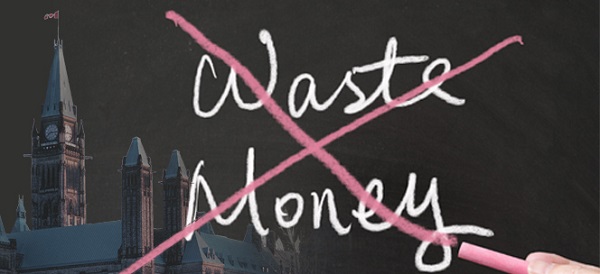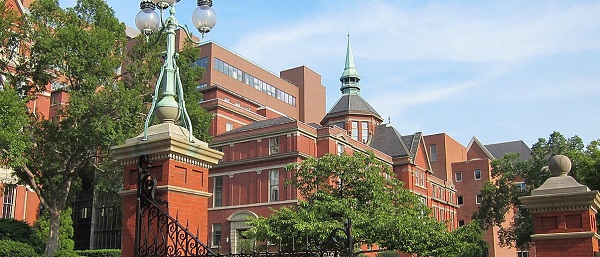Business
Canada’s department of government efficiency: A blueprint

From the Canadian Taxpayers Federation
Average compensation for a federal bureaucrat is $125,300. Cutting back the bureaucracy to population growth would save taxpayers $9 billion every year
Dumb government spending doesn’t stop at the 49th parallel.
U.S. President-elect Donald Trump announced the creation of a Department of Government Efficiency, with a mandate to “dismantle government bureaucracy, slash excess regulations, cut wasteful expenditures, and restructure federal agencies.”
Those marching orders sure would sound good in a prime minister’s mandate letter to a finance minister. And here’s the blueprint they should follow.
Begin with crazy research Canadian taxpayers are forced to subsidize.
The Social Sciences and Humanities Research Council spends $1 billion a year supporting “research and research training in the social sciences and humanities.”
Here’s a little taste of the reports it funds with your tax dollars:
- Gender Politics in Peruvian Rock Music ($20,000)
- Cart-ography: tracking the birth, life and death of an urban grocery cart, from work product to work tool ($105,000)
- My Paw in Yours: Dead Pets and Transcendence of Species Divides in Experimental Art-Making Practice ($17,500)
- Playing for Pleasure: The Affective Experience of Sexual and Erotic Video Games ($50,000)
And that’s just the tip of the iceberg.
Parks Canada put Mr. Magoo in charge of its hunting operations. It spent four years and $10,000 capturing a single bullfrog and dropped $800,000 hunting 84 deer on a B.C. Island. How can a simple hunt cost $10,000 per deer?
Well, hunting gets more expensive when instead of your grandpa’s old rifle, you use prohibited semi-automatic weapons, instead of a box of shells, you get a crate of ammo, and instead of your buddy’s old pickup, you rent a helicopter for $67,000.
Or how about the $8-million barn at Rideau Hall. Or $12,500 live senior citizen sex story shows. Or the $8,800 sex toy show in Germany. Or the millions wasted producing government podcasts no one listens to.
Then there’s government officials living high on the hog.
Governor General Mary Simon spent $71,000 on limo services in Iceland. Bureaucrats spend $76,000 a month renting art. Global Affairs Canada spends $51,000 on booze a month.
Now, the big stuff.
The size and cost of the government is out of control. Prime Minister Justin Trudeau hired 108,000 new bureaucrats. That’s a 42 per cent increase in less than a decade.
Had the bureaucracy only increased with population growth, there would be 72,491 fewer bureaucrats today.
Average compensation for a federal bureaucrat is $125,300. Cutting back the bureaucracy to population growth would save taxpayers $9 billion every year.
It’s time to stop rewarding failure with bonuses.
The feds dished out $1.5 billion in bonuses since 2015.
And the bonuses flow despite federal departments only managing to hit half of their performance targets once in the past five years.
Government executives overseeing ArriveSCAM took $340,000 in bonuses.
The Canada Mortgage and Housing Corporation rubberstamped $102 million in bonuses amid the worst housing crisis in Canadian history.
The Bank of Canada printed $20 million in bonus cheques in 2022, as inflation reached a 40-year high.
The CBC dished out $132 million in bonuses since 2015.
The next thing on the chopping block? Corporate welfare.
Trudeau put taxpayers on the hook for $30 billion in subsidies to multinational corporations like Honda,Volkswagen, Stellantis and Northvolt.
Federal corporate subsidies totalled $11.2 billion in 2022 alone.
Shutting down the federal government’s seven regional development agencies would save taxpayers an estimated $1.5 billion annually.
True efficiency would also mean eliminating failing government operations altogether. The feds should sell any Crown corporation that can, or should, be left to the private sector.
Here are a few examples.
The CBC, which takes more than $1 billion from taxpayers annually.
Canada Post, which lost $1.2 billion in the last two years and forecasts “larger, unsustainable losses in future years.”
VIA Rail, took $1.8 billion in taxpayer cash during the past five years just to cover operating losses.
The bad news for taxpayers is we pay too much tax because the government wastes too money. The list of wasteful spending in this article is far from exhaustive.
Other examples include the multi-billion dollar gun confiscation that police officers say won’t work, the $25-billion equalization scheme and taxpayer-funded media bailouts, among others.
The good news is a champion of taxpayers could make massive cuts and barely anyone outside the Ottawa bubble would notice.
This is the blueprint to slash Ottawa’s wasteful, bloated bureaucracy. All we need now is a prime minister with the guts to pick up the scissors.
Business
Liberal’s green spending putting Canada on a road to ruin

Once upon a time, Canadians were known for our prudence and good sense to such an extent that even our Liberal Party wore the mantle of fiscal responsibility.
Whatever else you might want to say about the party in the era of Jean Chrétien and Paul Martin, it recognized the country’s dire financial situation — back when The Wall Street Journal was referring to Canada as “an honorary member of the Third World” — as a national crisis.
And we (remember, I proudly served as Member of Parliament in that party for 18 years) made many hard decisions with an eye towards cutting spending, paying down the debt, and getting the country back on its feet.
Thankfully we succeeded.
Unfortunately, since then the party has been hijacked by a group of reckless leftwing fanatics — Justin Trudeau and his lackeys — who have spent the past several years feeding what we built into the woodchipper.
Mark Carney’s finally released budget is the perfect illustration of that.
The budget is a 400 page monument to deficit delusion that raises spending to $644.4 billion over five years — including $141.4 billion in new spending — while revenues limp to $583.3 billion, yielding a record (non-pandemic) $78.3 billion shortfall, an increase of 116% from last year.
This isn’t policy; it’s plunder. Interest payments alone devour $55.6 billion this year, projected to hit $76.1 billion by 2029-30 — more than the entire defence budget and rising faster than healthcare transfers.
We can’t discount the possibility that this will lead to a downgrade of our credit rating, which will significantly increase the cost of borrowing and of doing business more generally.
Numbers this big start to feel very abstract. But think of it this way: that is your money they’re spending. Ottawa’s wealth is made up entirely of our tax dollars. We’ve entrusted that money to them with the understanding that they will use it responsibly. In the decade these Liberals have been in power, they have betrayed that trust.
They’ve pursued policies which have made life in Canada increasingly unaffordable. For example, at the time of writing it takes 141 Canadian pennies (up from 139 a few days ago) to buy one U.S. dollar, in which all of our commodities are priced. Well, that’s .25 cents per litre of gasoline. Imagine what that’s going to do to the price of heating, of groceries, of the various other commodities which we consume.
And this budget demonstrates that the Carney era will be more of the same.
Of course, the Elbows Up crowd are saying the opposite — that this shows how fiscally responsible Mark Carney is, unlike his predecessor. (Never mind that they also publicly supported everything that Trudeau did when he was in government.) They claim that Carney shows that he’s more open to oil and gas than Trudeau was.
Don’t believe it.
The oil and gas sector does get a half-hearted nod in the budget with, for instance, a conditional pathway to repeal the emissions cap. But those conditions are important. Repeal is tied to the effectiveness of Carney’s beloved industrial carbon tax. If that newly super-charged carbon tax, which continues to make our lives more expensive, leads to government-set emissions reductions benchmarks being met, then Ottawa might — might — scrap the emissions.
Meanwhile, the budget doubles down on the Trudeau government’s methane emissions regulations. It merely loosens the provisions of the outrageous Bill C-59, an act which should have been scrapped in its entirety. And it leaves in place the Trudeaupian “green” super structure, which has resource sector investment, and any business that can manage it, fleeing to the U.S.
In these perilous times, with Canada teetering on the brink of recession, a responsible government would be cutting spending and getting out of the way of our most productive sectors, especially oil and gas — the backbone of our economy.
It would be repealing the BC tanker ban and Bill C-69, the “no more pipelines act,” so that our natural resources could better generate revenue on the international market and bring down energy rates at home.
It would quit wasting millions on Electric Vehicle charging stations; mandating that all Canadians buy EVs, even with their elevated cost; and pressuring automakers to manufacture Electric Vehicles, regardless of demand, and even as they keep closing up shop and heading south.
But in this budget the Liberals are going the opposite direction. Spend more. Tax more. Leave the basic Net-Zero framework in place. Rearrange the deck chairs on the Titanic.
They’re gambling tomorrow’s prosperity on yesterday’s green dogma, And every grocery run, every gas fill-up, every mortgage payment will serve as a daily reminder that we are the ones footing the bill.
Once upon a time, the Liberals knew better. We made the hard decisions and got the country back on its feet. Nowadays, not so much.
Business
Carney doubles down on NET ZERO

If you only listened to the mainstream media, you would think Justin Trudeau’s carbon tax is long gone. But the Liberal government’s latest budget actually doubled down on the industrial carbon tax.
While the consumer carbon tax may be paused, the industrial carbon tax punishes industry for “emitting” pollution. It’s only a matter of time before companies either pass the cost of the carbon tax to consumers or move to a country without a carbon tax.
Dan McTeague explains how Prime Minister Carney is doubling down on net zero scams.
-

 Business2 days ago
Business2 days agoWill Paramount turn the tide of legacy media and entertainment?
-

 Alberta2 days ago
Alberta2 days agoFederal budget: It’s not easy being green
-

 Health16 hours ago
Health16 hours agoLack of adequate health care pushing Canadians toward assisted suicide
-

 Alberta8 hours ago
Alberta8 hours agoATA Collect $72 Million in Dues But Couldn’t Pay Striking Teachers a Dime
-

 Education2 days ago
Education2 days agoJohns Hopkins University Announces Free Tuition For Most Students
-

 Energy2 days ago
Energy2 days agoA picture is worth a thousand spreadsheets
-

 Energy1 day ago
Energy1 day agoIt should not take a crisis for Canada to develop the resources that make people and communities thrive.
-

 Dr John Campbell1 day ago
Dr John Campbell1 day agoCures for Cancer? A new study shows incredible results from cheap generic drug Fenbendazole











